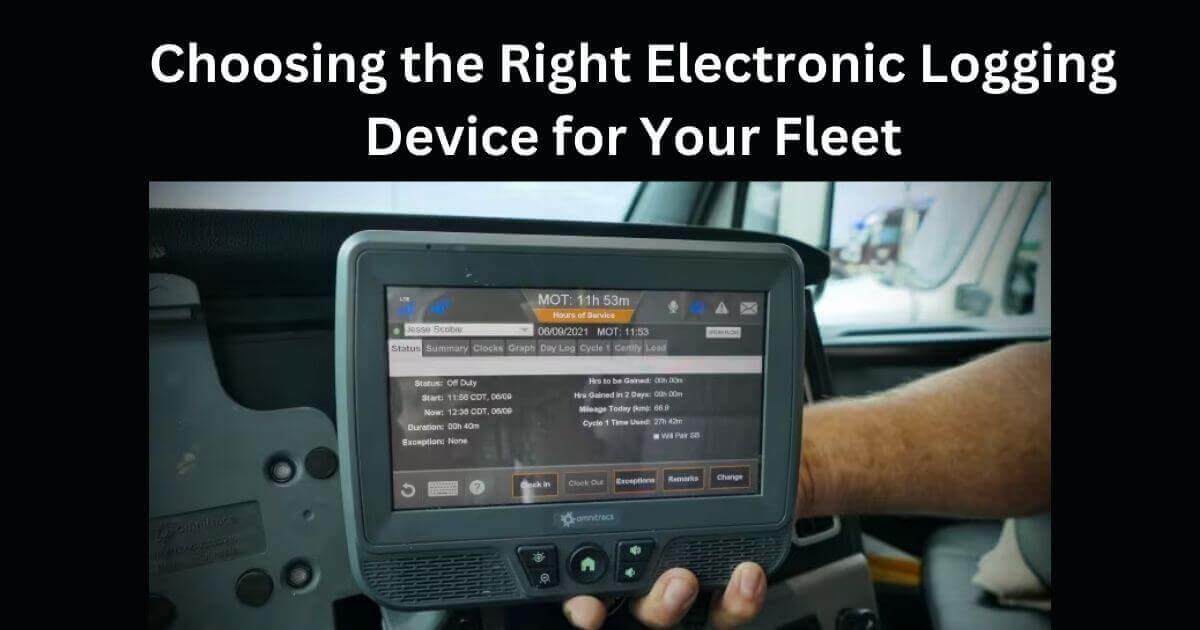The right ELD solution can be a competitive advantage. Besides removing the issue of keeping paper logs, they can improve efficiency and reliability.
Look for an FMCSA-registered device that has a simple interface for truckers. Also, choose a durable device to withstand rough road conditions.
Moreover, a well-designed system can help fleet managers reduce fuel waste by using the data they collect from their drivers.
Cost
ELDs help trucking companies save on fuel, insurance, and maintenance costs. They also reduce driver fatigue and increase productivity. In the worst case, driver fatigue can result in accidents. These incidents can cost a lot of money in repairs and fines.
The cost of an ELD depends on many factors, including hardware and subscription fees. It is essential to understand these costs before choosing an ELD system for your fleet. It is also good to ask the vendor about pricing structures and terms. Lengthy contracts can add up to prohibitive costs over time.
The best ELD devices are FMCSA-approved and easy to use. For example, electronic logging devices have a simple user interface and offer drivers a free 500MB of WiFi data. It is also compatible with the GPS Insight app, making it easier for drivers to optimize routes and stay on time. It is an excellent choice for small and large fleets alike.
Compatibility
An ELD is a standard piece of hardware that easily plugs into the OBD port of a compatible vehicle, recording data related to location, speed, engine diagnostics, driving hours, and more. While the primary purpose of these devices is to prevent driver fatigue and improve fleet efficiency, they also save trucking companies a lot of money.
For instance, the best ELD systems automatically tallies hours of service and records duty status, and they provide a robust set of compliance tools for an affordable monthly fee. These features make avoiding form-and-manner violations and CSA scores much more accessible, reducing operational costs.
Moreover, they help drivers stay on track to reach their destination on time and improve driver retention by providing them with more opportunities for work. As such, they can be an invaluable asset for freight organizations of any size. However, choosing the right ELD system for your fleet requires some research.
Applicability
Whether you are a new fleet manager or experienced, there are certain things to remember when choosing an ELD. First, make sure the device is FMCSA-approved. It should list on the agency’s self-certified list of devices and should meet its requirements for recording HOS data, among other features.
A good ELD should also be compatible with other equipment. For example, it should be able to communicate with a GPS tracking device to record vehicle location in real-time. This information will enable fleet managers to identify efficiency improvement and fuel savings areas.
You should also consider an ELD solution subscription charges and pricing structure. Avoid solutions with lengthy contracts or hidden fees. Instead, look for a system with flexible plans.
Security
ELDs are designed to protect fleets from compliance violations that could cost them money. However, suitable devices can also save truck drivers time and improve productivity. For instance, by allowing them to avoid filling out paper logs, the FMCSA estimates that an ELD will save truck drivers 19 hours yearly.
When selecting an ELD, looking at the vendor’s experience and reputation is essential. Choose a trusted provider that has been in the industry for years and dedicate to keeping up with FMCSA regulations. In addition, ask about pricing structures and scalability.
Additionally, the ELD solution should have a simple interface for truckers to use. If the device is difficult to understand or operate, truckers may be reluctant to use it and could face non-compliance citations. This is why a company that puts user experience first is best. Ask the vendor about features like tracking routes, displaying vehicle locations, and providing real-time ETAs.




